MEPC 79/3/6: Emission Control Areas (ECAs) – work in progress for cleaner air and healthy coastal communities
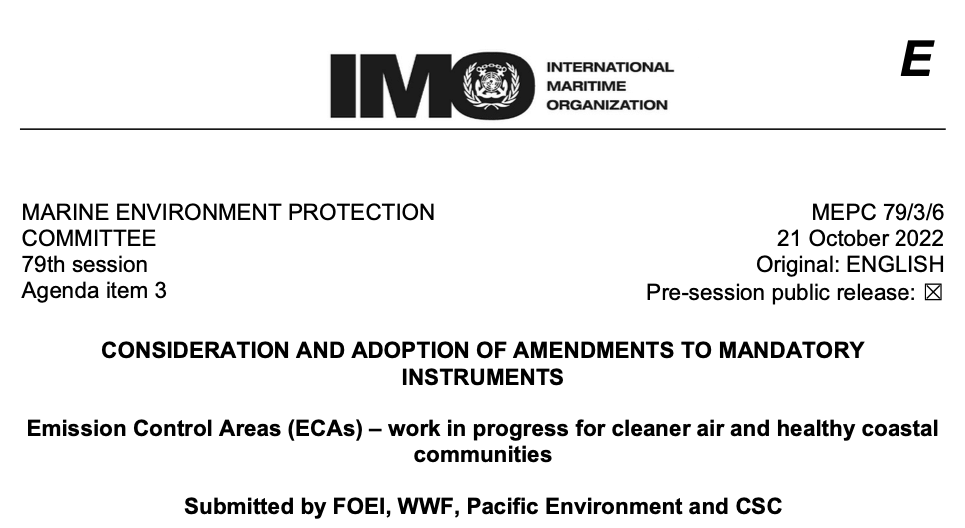
This document welcomes the adoption of a Mediterranean Sea Emission Control Area for Sulphur Oxides and Particulate Matter (MEPC 79/3/2), whilst pointing to the importance of continued work on ship air pollution in other parts of Europe and the Arctic.
SDC 9/5: Report of the Correspondence Group on the Review of the Underwater Noise Guidelines
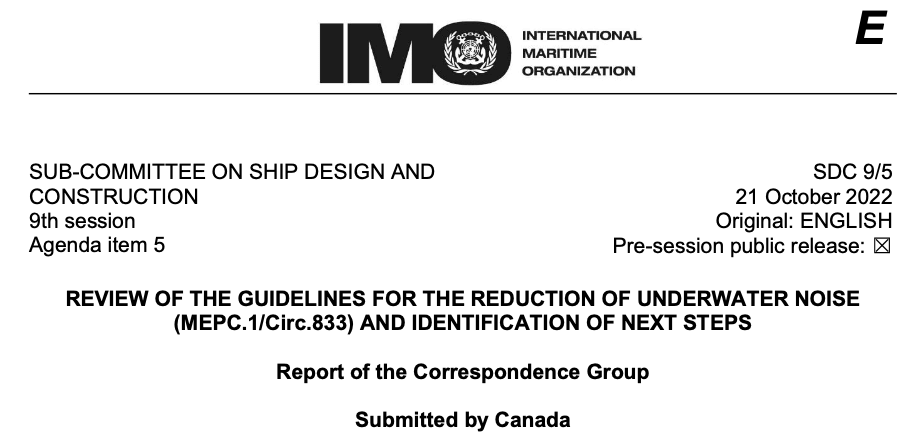
This document contains the report of the Correspondence Group on the Review of the Underwater Noise Guidelines.
MEPC 79/5/6 – Arctic HFO ban is not a Black Carbon control measure
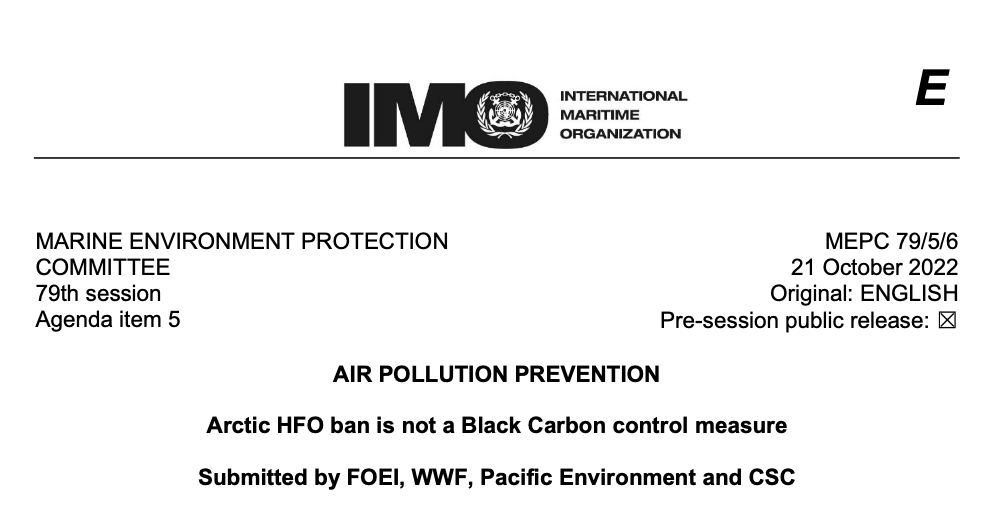
This commenting document responds to two submissions (MEPC 79/14/1 and MEPC 79/5/5) and clarifies why the IMO’s Arctic Heavy Fuel Oil (HFO) ban is not a substitute for a Black Carbon control measure.
Clean Arctic Alliance Response to FuelEU Maritime Regulation Vote
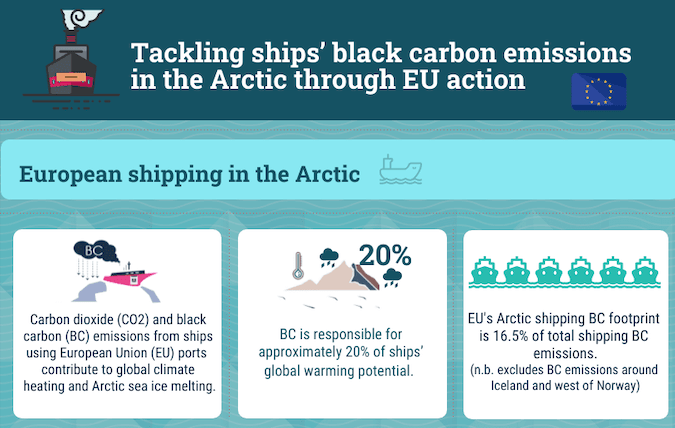
EU’s proposed FuelEU Maritime Regulation fails to protect the Arctic from the impact of shipping black carbon emissions. Despite the EU’s Arctic strategy supporting efforts to reduce black carbon emissions and promoting faster and more ambitious emission reductions for Arctic shipping, the EU’s supposed ‘landmark’ agreement ignores black carbon – 20% of shipping’s climate impact
MEPC 79/14/1: Proposal for a revision to MARPOL Annex I regulation 43A on the special requirements for the use and carriage of oils as fuels in Arctic waters
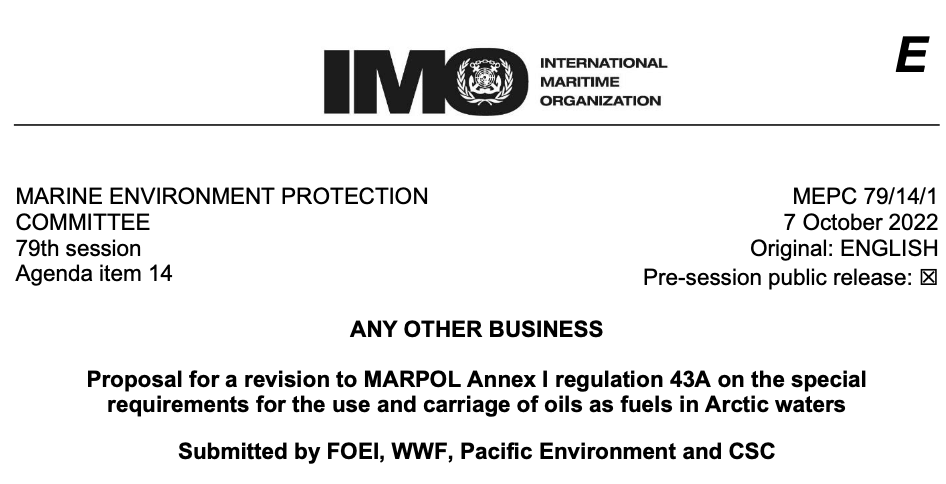
This document draws attention to the likelihood that only 30 per cent of the heavy fuel oil (HFO) being carried in Arctic waters and 16 per cent of the HFO being used in Arctic waters will be prohibited from 1 July 2024 when the provisions of MARPOL Annex I regulation 43A take effect. The limited impact of the prohibition on the use and carriage of HFO is highlighted as being due to exemptions which would apply to 22 per cent of ships and the opportunity for Arctic coastal nations to issue waivers to up to 53 per cent of ships operating in the Arctic (based on 2019 Arctic shipping patterns). It proposes that regulation 43A be amended to increase its effectiveness in protecting the Arctic from HFO.
MEPC 79/7/20: Climate science, cascading tipping points, the Initial IMO GHG Strategy, and urgent action on shipping to reduce climate risks
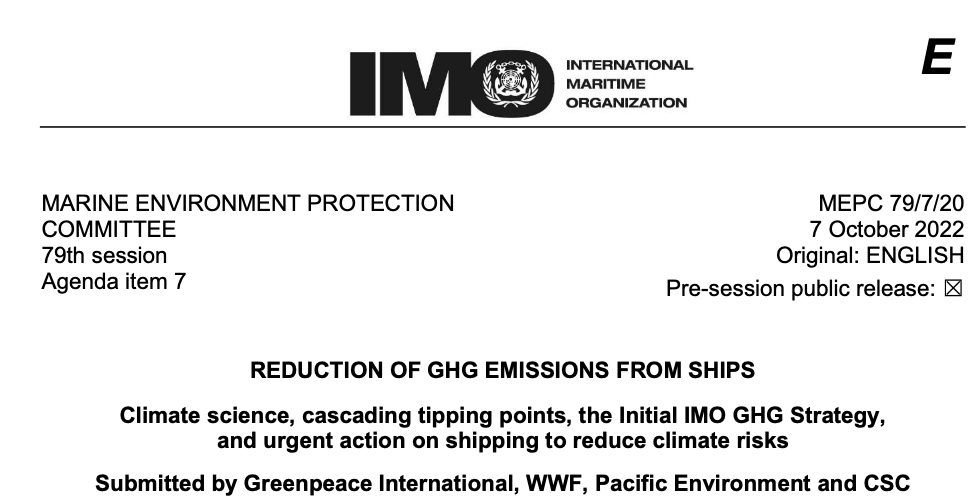
This document outlines recent scientific evidence on the risks of triggering cascading climate tipping points from climate heating and makes recommendations for urgent near-term actions that will contribute to limiting global heating to below 1.5°C to mitigate these risks.
MEPC 79/5/5: Amending MARPOL Annex VI to Reduce the Impact on the Arctic of Emissions of Black Carbon
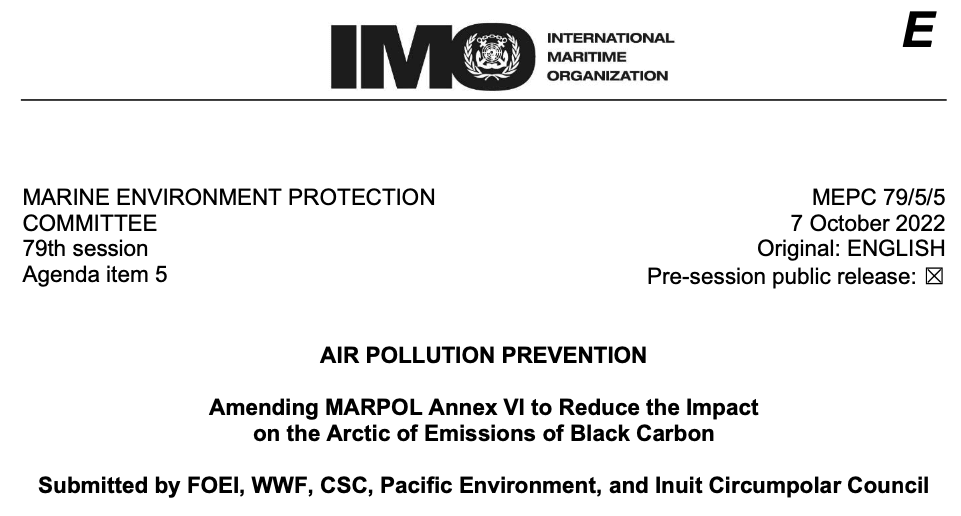
This document recalls MEPC’s commitment over eleven years ago at MEPC 62 to address the impact of Black Carbon emissions on the Arctic and outlines an approach to amend MARPOL Annex VI to incorporate a requirement for ships to only use marine distillate fuel or other cleaner alternative fuels or methods of propulsion that are safe for ships when operating in or near to the Arctic.
MEPC 79/5/3: EGCS and UNCLOS
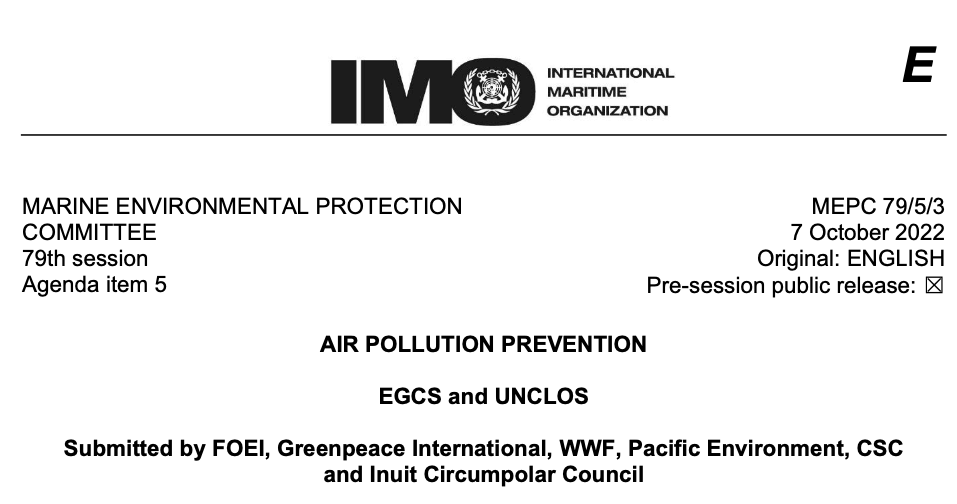
This document outlines how the discharge of wastes from Exhaust Gas Cleaning Systems (EGCS) into the marine environment as an alternative compliance mechanism for SOx emissions appears to raise issues of inconsistency with the law of the sea obligations of States to protect and preserve the marine environment, and the suggested steps to address the likely inconsistencies.
Livestream: Next Steps for Iceland’s Arctic Action Plan – Wednesday, 12 October

Urgent Action to Reduce Shipping Impacts on the Arctic

